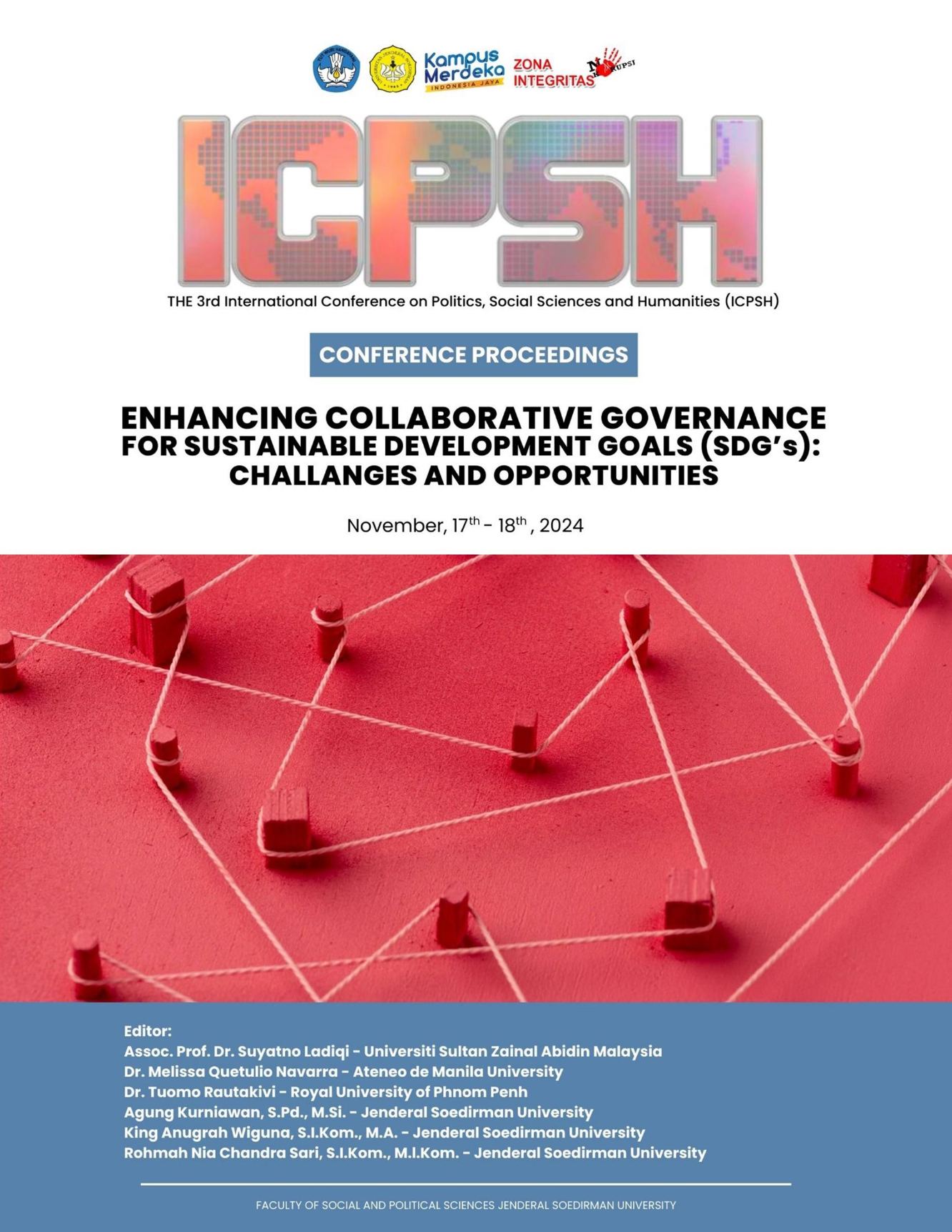The Role Of Governance Capability In The PMI Desmigrative Program's Success
Abstract
his research aims to evaluate the relationship between governance capability and three
dependent variables: the increase in income of Indonesian Migrant Workers (PMI), the number of
businesses established by PMI, and the level of satisfaction of PMI with the Desmigratif Program. Using
linear regression analysis, this study analyzes data from six regions in Indonesia that exhibit variations in
governance capability. The results indicate that governance capability has a significant relationship with
increased income, the number of businesses established, and the level of satisfaction among migrant
workers. Higher governance capability is consistently associated with greater increases in MSME income,
with a regression coefficient of 9.65, meaning that each one-unit increase in governance capability is
related to a 9.65% increase in income. Additionally, better governance capability also drives an increase
in the number of businesses established by MSMEs, with a coefficient of 17.80. The level of MSME
satisfaction with the programs also rises alongside improvements in governance capability, with a
coefficient of 9.65. A very high R-squared value (between 0.98 and 0.99) indicates that governance
capability is the main factor influencing the program's success across all dependent variables. This
research concludes that enhancing governance capability at the local level can play a crucial role in
supporting the success of the Desmigratif Program, particularly in improving the economic and social
welfare of migrant workers. To increase the program's effectiveness across regions, it is essential to
strengthen governance in areas with low governance capability.



